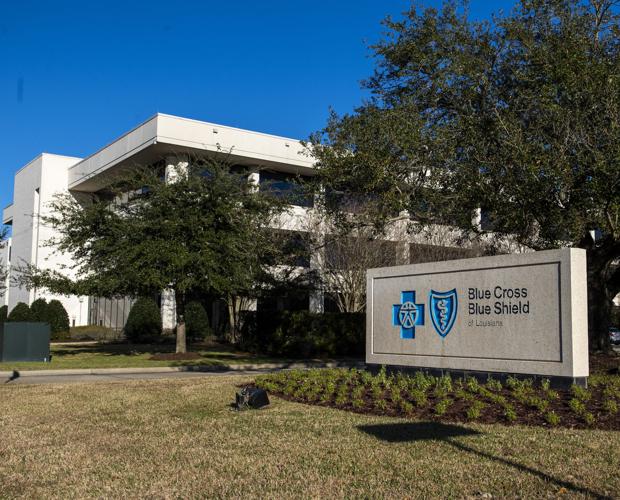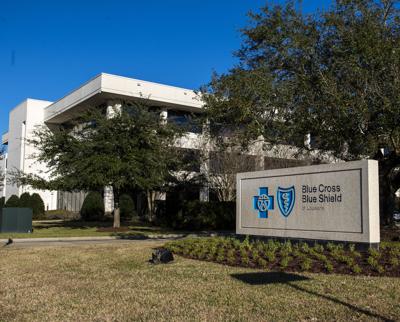Two months after health insurer Blue Cross and Blue Shield of Louisiana tabled a plan to sell itself to one of the nation’s largest insurance companies, the proposed deal that faced opposition the first time around is again moving forward.
The nonprofit Baton Rouge-based Blue Cross, which insures 1.9 million Louisiana residents, filed a new application on Thursday with the Louisiana Department of Insurance to reorganize into a for-profit company that could then be purchased by Indianapolis-based Elevance Health.
The $2.5 billion deal came under fire earlier this year, with some doctors and hospitals arguing it could limit patient access to providers and policyholders questioning the amount of the proposed payout. The deal also ran into trouble at the State Capitol, where state legislators questioned Elevance's track record and Attorney General Jeff Landry opposed the deal.
Blue Cross has argued that the sale to the publicly traded insurance giant would bring the latest digital tools and technology, better service and potentially lower health care costs to Blue Cross customers.
Many of the major elements of the proposed acquisition are largely unchanged from the original proposal announced in January. The sale price remains the same, as does the percentage of the sale's proceeds that will go to Blue Cross' 92,000 official policyholders.
But the new deal includes changes to the nonprofit foundation that will be formed as part of the transaction and is set to receive 91% of the sale's proceeds. The Accelerate Louisiana Initiative will now have an expanded board of directors that includes an appointee of Gov.-elect Jeff Landry. It will also include a nonvoting "observer" appointed by newly elected Insurance Commissioner Tim Temple.
The foundation, which Blue Cross is expecting to be worth $3.5 billion after it includes "surplus" funds currently under its control, will also be incorporated in Louisiana instead of Delaware and will have a more narrowly defined mission.
The new plan spells out the four ways Accelerate Louisiana would seek to “work to improve the health and lives of the people of the Louisiana,” by reducing the dependency on public assistance for those living in poverty; improving health outcomes around chronic disease; increasing the health care workforce; and improving the way the state functions in healthcare.
Blue Cross CEO Dr. Steve Udvarhelyi said that giving the new governor control over one seat on the board and giving the Insurance Commissioner an oversight role was a way to address concerns from stakeholders about how the foundation money would be spent.
“The concerns we heard were that the board was going to be a self-perpetuating board with no involvement from state government,” said Udvarhelyi. “This will provide the measure of public oversight that some had asked about.”
Board approval
The proposed change to the board makeup and several others related to the foundation were approved by the Blue Cross board of directors Tuesday.
Following a public hearing by the Department of Insurance early next year, the deal must be approved by two-thirds of the company’s policyholders and by the state insurance commissioner.
Officials with Blue Cross and Elevance said they are optimistic the sale will be finalized during the first quarter of the new year.
Landry, as state attorney general, opposed the deal, questioning whether selling Blue Cross to a for-profit, publicly traded company was in the best interest of a state with high poverty rates and poor health outcomes. Before he was elected, he urged the company to postpone the transaction until after a new governor and insurance commissioner had taken office in January.
'By the book'
Blue Cross first announced the deal with Elevance nearly a year ago. But as the deal came under closer scrutiny before its approval by regulators, critics expressed concerns about the effect of the sale on customers and questioned the structure of the foundation.
Two reports by independent consultants prepared for state regulators raised questions about some of the deal assumptions. More recently, a Metairie attorney has filed a suit in federal court seeking class action status on behalf of the 92,000 policyholders, arguing that as members of the mutual indemnity company who have paid into it over the years, they, not the foundation, are entitled to the sale proceeds.
Under the terms of the current deal, policyholders will split some $276 million, receiving approximately $3,000 each.

Elevance legal counsel Jay Wagner walks back to his seat after being excused during a joint legislative insurance committee hearing on the sale of Blue Cross Blue Shield of Louisiana to Elevance Health on Wednesday, August 16, 2023 in Baton Rouge, Louisiana.
Udvarhelyi said Blue Cross stands behind the rationale for the deal, the way it arrived at the numbers and why he believes it is in the best interest of Blue Cross customers.
"Our articles are clear that our policyholders have a voting right but cannot get dividends or any stock, so we are following our articles and following state law," he said. "We believe we are doing this fairly, equitably, by the books."
Foundation questions
Still, Udvarhelyi acknowledged that concerns regarding the foundation needed to be addressed. Expanding the board is one of the ways it is hoping to do that. Another is by planning to organize the foundation as a “501(c)4 special charitable trust” that would be legally prohibited from engaging in political activity.
Such a change would require a change of state law by the legislature.
Currently, the foundation is set up as a 501c4 social welfare foundation, a particular type of nonprofit organization under the Internal Revenue Service code that is exempt from most taxes in return for meeting certain criteria.
Critics had argued that organizing as a 501c4, not a 501c3 charitable organization, could potentially allow the foundation to engage in lobbying and political advocacy around health care legislation.
Blue Cross officials have said the initial structure they propose would offer more flexibility around the amount of grant money they have to award every year. They said they hoped that by organizing as a "special charitable trust" that, under state law, precludes political activity, would satisfy critics.
Udvarhelyi said Landry is aware of their plan to seek that change in state law, but could not say whether he will include it in a call for a special session in early 2024.



